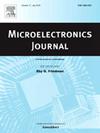移动平台上CNN模型加速的自动化解决方案
IF 1.9
3区 工程技术
Q3 ENGINEERING, ELECTRICAL & ELECTRONIC
引用次数: 0
摘要
本文介绍了一种基于 FPGA 的卷积神经网络 (CNN) 加速器,旨在提高资源受限平台的计算效率和灵活性。虽然 FPGA 具有高能效和高适应性,但大规模 CNN 部署面临着计算强度、内核尺寸多样化和硬件限制等挑战。为了解决这些问题,我们提出了一种在四个卷积环维度上进行优化的加速器,以确保高效的资源利用和简化的数据传输。我们的架构包含三项关键创新:(1)循环优化计算框架,动态平衡内循环和外循环之间的并行性,最大限度地提高数据重用率,防止出现性能瓶颈;(2)定制数据布局和内存管理,缓解带宽限制,确保在不同工作负载下的高计算效率;(3)自动参数优化,将强化学习与基于 Python 的搜索算法相结合,探索设计配置,优化特定应用的性能。加速器在 ZCU111 和 ZCU102 FPGA 平台上使用 ResNet-50、ResNet-152 和 VGG-16 进行了验证。结果表明,69.9% 的计算效率≥80%,47.1% 的计算效率超过 90%,19.2% 的计算效率超过 95%,表现出优于先前 FPGA 实现的性能。与现有设计相比,我们的方法实现了 64.0% 的效率提升和 36.5% 的吞吐量提升,同时保持了跨网络架构的灵活性。这些发现凸显了自动优化技术在基于 FPGA 的 CNN 加速中的潜力。本文章由计算机程序翻译,如有差异,请以英文原文为准。
Automated Solutions for CNN Model Acceleration on Mobile Platforms
This paper presents an FPGA-based convolutional neural network (CNN) accelerator designed to enhance computational efficiency and flexibility for resource-constrained platforms. While FPGAs offer high energy efficiency and adaptability, large-scale CNN deployments face challenges such as computational intensity, diverse kernel sizes, and hardware limitations. To address these issues, we propose an accelerator optimized across four convolution loop dimensions, ensuring efficient resource utilization and streamlined data transmission. Our architecture incorporates three key innovations: (1) Loop-optimized computation framework, which dynamically balances parallelism between inner and outer loops, maximizing data reuse and preventing performance bottlenecks; (2) Customized data layout and memory management, mitigating bandwidth limitations and ensuring high computational efficiency under varying workloads; (3) Automated parameter optimization, integrating reinforcement learning with Python-based search algorithms to explore design configurations, optimizing performance for specific applications. The accelerator is validated on ZCU111 and ZCU102 FPGA platforms using ResNet-50, ResNet-152, and VGG-16. Results show that 69.9% of computations achieve ≥80% efficiency, 47.1% surpass 90%, and 19.2% exceed 95% efficiency, demonstrating superior performance over prior FPGA implementations. Compared to existing designs, our approach achieves a 64.0% increase in efficiency and a 36.5% boost in throughput, while maintaining flexibility across network architectures. These findings highlight the potential of automated optimization techniques in FPGA-based CNN acceleration.
求助全文
通过发布文献求助,成功后即可免费获取论文全文。
去求助
来源期刊

Microelectronics Journal
工程技术-工程:电子与电气
CiteScore
4.00
自引率
27.30%
发文量
222
审稿时长
43 days
期刊介绍:
Published since 1969, the Microelectronics Journal is an international forum for the dissemination of research and applications of microelectronic systems, circuits, and emerging technologies. Papers published in the Microelectronics Journal have undergone peer review to ensure originality, relevance, and timeliness. The journal thus provides a worldwide, regular, and comprehensive update on microelectronic circuits and systems.
The Microelectronics Journal invites papers describing significant research and applications in all of the areas listed below. Comprehensive review/survey papers covering recent developments will also be considered. The Microelectronics Journal covers circuits and systems. This topic includes but is not limited to: Analog, digital, mixed, and RF circuits and related design methodologies; Logic, architectural, and system level synthesis; Testing, design for testability, built-in self-test; Area, power, and thermal analysis and design; Mixed-domain simulation and design; Embedded systems; Non-von Neumann computing and related technologies and circuits; Design and test of high complexity systems integration; SoC, NoC, SIP, and NIP design and test; 3-D integration design and analysis; Emerging device technologies and circuits, such as FinFETs, SETs, spintronics, SFQ, MTJ, etc.
Application aspects such as signal and image processing including circuits for cryptography, sensors, and actuators including sensor networks, reliability and quality issues, and economic models are also welcome.
 求助内容:
求助内容: 应助结果提醒方式:
应助结果提醒方式:


